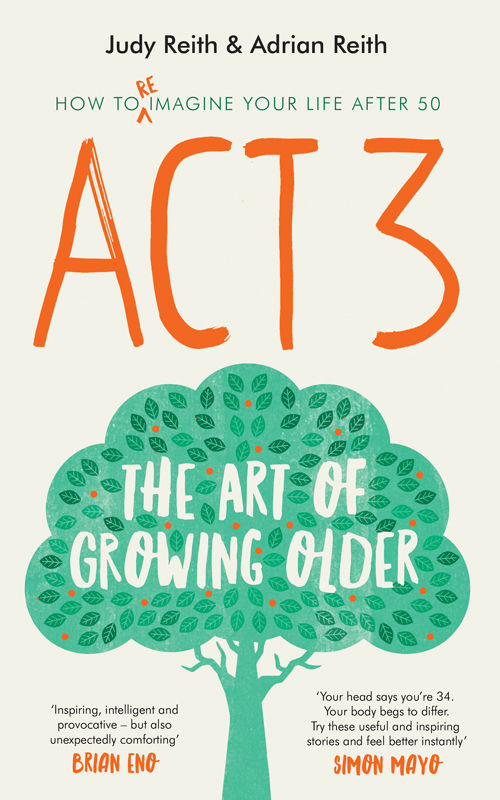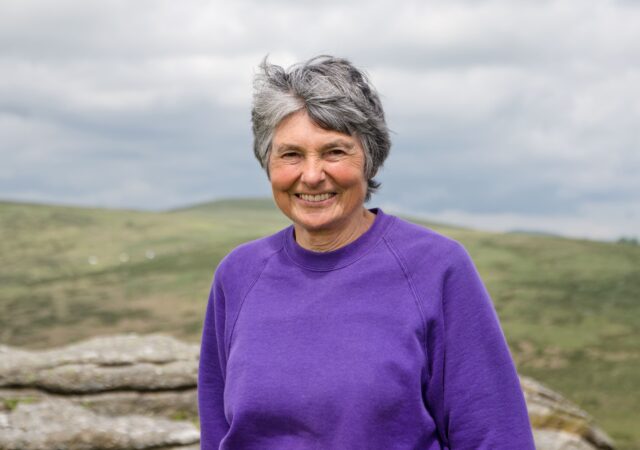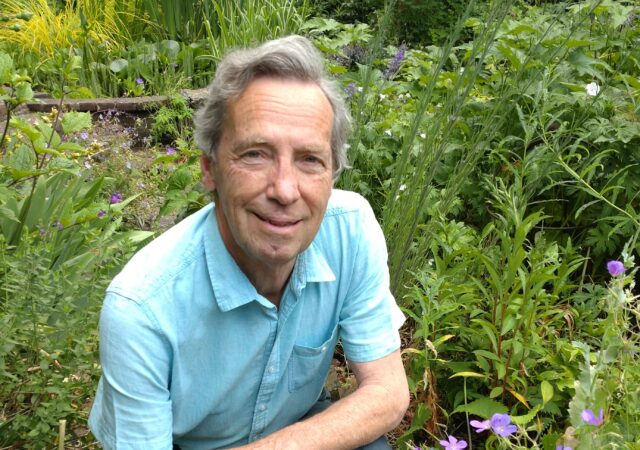Who will you be when this Thing is over?
We must apologise – in the middle of an international pandemic we have the cheek to launch a book called Act 3: The Art Of Growing Older.
Yes, we’re genuinely sorry that there will be people, maybe a great number who won’t be growing older after this, and our hearts go out to them and their families.
Yet one thing we all know is we will eventually beat this Thing, and lives will return to normal.

The New Normal
However, we predict – ‘normal’ before the Thing and ‘normal’ after the Thing will be two very different realities.
So without wanting to take advantage of people’s huge feelings of loss and vulnerability, we’d like to point you gently to the stories in our book where people have moved on from painful circumstances, or uncomfortable situations to something far better.
And there are some who have decided the time is right to move on from comfortable and easy circumstances to help others in a most profound way, and in so doing have made their own lives a great deal less comfortable but a great deal more satisfying.
In the book we wanted to show what it was that enabled these people to make these profound changes – so you can too.
Adopt 3 Children?
But first, let’s start with a story you won’t believe. It was an autumn evening four and a half years ago when we were invited round by our friends Dorothy and Simon for supper. Over the shepherd’s pie after we’d exchanged news about their and our three adults kids and associated university adventures Dorothy dropped the bomb, ‘guess what we’re going to do?’ Dunno, we said. Go on a cruise? Dorothy was straight-faced, ‘We’re going to adopt three small children’.
Jaws hit floors, glasses and cutlery rattled and I couldn’t stop laughing for about five minutes. But they were serious. She told us she’d seen a newspaper ad which said, ‘could you parent these children?’ and Dorothy just looked at it and answered ‘yes’. Only after this discussing the idea with Simon (before replying to the ad).
A Sense of Calling
Dorothy: We’d said to various people that we were looking forward to the empty nest, but seeing the advertisement I was surprised; I experienced it as a real finger-of-God moment, ‘could you parent these particular children?’
Simon: There was a sense of calling; this was very unusual for us. I can’t really explain why that came about or why I felt so convinced. I think it’s quite hard to say, even with your own children, what is so rewarding about being a parent, because it’s easier to think about all the things that are difficult. They are delightful children. There’s something quite rewarding about having a small child who, when they’re distressed, comes to you, who wants your love and support.
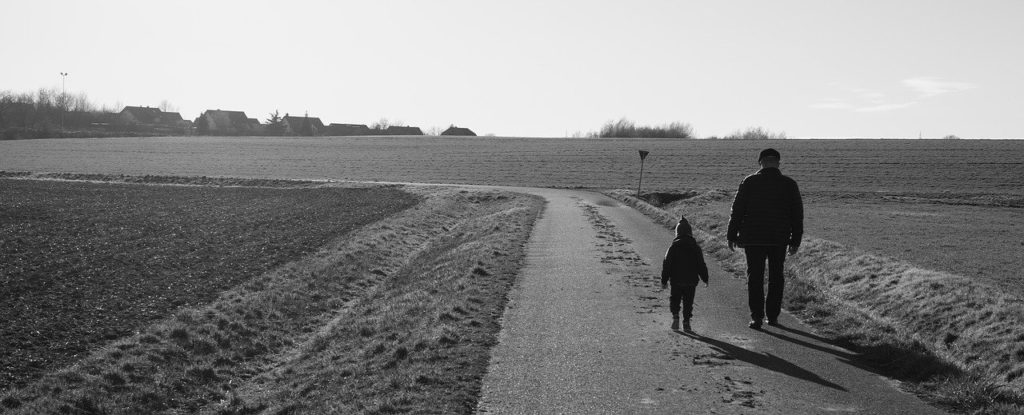
There is a sense of satisfaction – at my age everybody thinks, ‘what am I doing with my life?’ I’ve been at Microsoft for twenty years and that’s a long time to be in one job. If you look back over the story arc of what you’ve done with your life and think, ‘what am I doing with my life beyond just carrying on with it?’ … this is really something. We have done something together that – however it turns out and we don’t know how it’ll all turn out – the children’s chances are bound to be better than they were. At a deep level that’s quite rewarding.
Just Getting Started
It’s given us a lot of purpose. When people ask, ‘what do you do?’ Previously I probably would have majored on work, now I start with the children because it’s a big part of my life. At 60 I feel like I’m just getting going,
Years on the twin boys of three have are seven and the daughter is ten.
In the book we point out that what Dorothy and Simon were demonstrating are the things that people who’ve discovered the art of growing older seem to hold important. We call them roots of the tree:

The Roots Of The Tree
Root 1: Attitude: when all’s said and done, attitude is a choice. This couple deliberately chose to trade their own peace and comfort for the well being of three small strangers. And their attitude remains resolutely positive.
Root 2: Purpose is about direction. Dorothy and Simon have a clear direction to this chapter of their lives which gives them clear purpose. There are many other ways of course to find your own purpose without adopting three small children.
Root 3: Values are the way we lead our lives. When a couple in their mid-50s decide to adopt three small children, their own three children having left home, it shows that this family lives not just for themselves but for others too. Kindness, generosity and self-sacrifice might be ways to describe their values.
Root 4: Key Relationships: Dorothy and Simon have a strong foundation to their relationship, shared positive attitude, purpose and values. It would have been a different story to try to do such a thing alone. Their united approach is a big strength of theirs.
Act 3 – The Art Of Growing Older
Act 3: The Art Of Growing Older is a book designed to take you from wherever you are to a place that’s better for you. It is structured in a way that makes it easy to think through the steps to change in your own life. We use tools and tips from our work as lifelong coaches, step by step, helping the reader achieve clarity and more of what they want.
And getting what you want in the ‘new normal’ doesn’t have to be adopting small children. Another man we spoke to became a professional dancer in his sixties. A teacher of dentistry became a weaver. A neuroscientist became a potter and café owner. One woman stopped watching daytime TV to start a business. A lawyer gave up to re-train as a midwife. Many, many others just got their lives tidied up and sorted out.
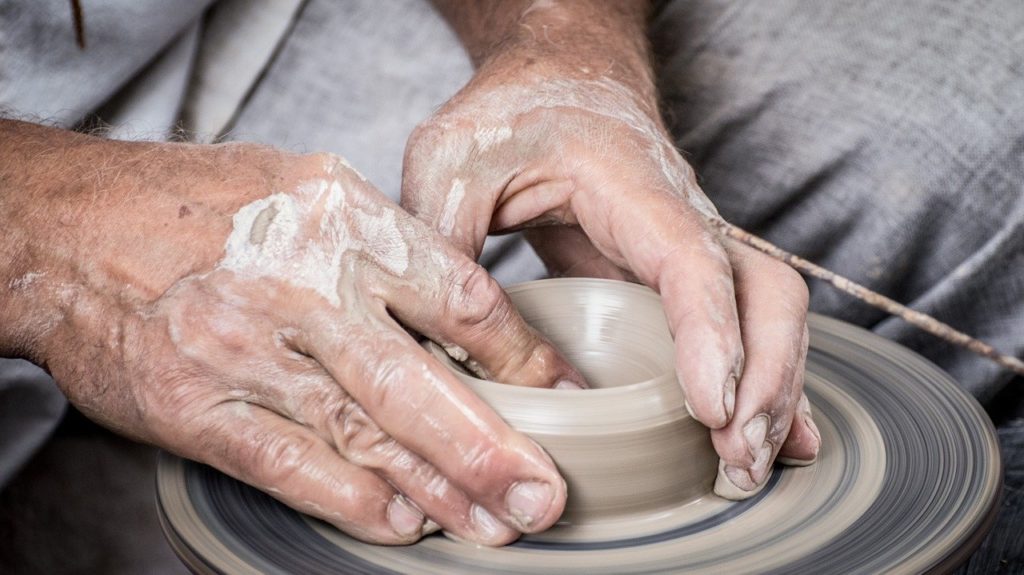
So, back to the pressing question that the whole world has at the back of their mind – who will you be when this Thing is over?
Could it be a huge opportunity for you?
If so, our book can help.
Act 3: The Art Of Growing Older by Judy Reith and Adrian Reith is out now.
